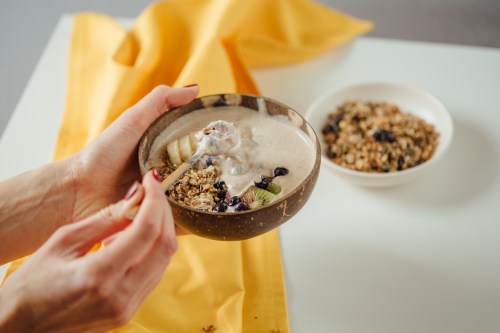Stop avoiding that ick feeling of disgust—it could actually be keeping you healthy
A new study says feelings of disgust is actually a biological response that helps you stay healthy by keeping you far away from harmful pathogens in rotten food, diseased bugs, and more.

Disgust is a strong feeling catalyzed by something that probably makes you feel sick to your stomach: Perhaps you’ve experienced it upon opening your refrigerator door and being enveloped in the stench of something rotten, or maybe after learning about the germiest place at the airport, or even catching news that the latest alt-milk comes from cockroaches. Regardless of the origin of your internal ick, science shows that the sensation exists for an important reason: To help you stay healthy.
In a new study published in the journal Philosophical Transactions of the Royal Society, more than 2,500 people (with an average age of 28, and 66 percent female) completed an online survey including 75 scenarios. The participants were asked them to rate their level of disgust for each situation, and the results showed that people’s disgust is spurred by six triggers: poor hygiene, disease-carrying animals and insects (particularly mice and mosquitoes), spoiled food, risky sexual behavior, infection cues (like people coughing), and lesions (like blisters, boils, or pus). According to experts, feeling disgust in reaction to these triggers is basically a protective biological response that has kept people away from harmful pathogens for centuries.
“Disgust evolved to protect us from disease in our ancient past. The disgust response today may or may not be a good guide to what might make us sick today.” —Dr. Val Curtis, lead study author
“Disgust evolved to protect us from disease in our ancient past. The disgust response today may or may not be a good guide to what might make us sick today,” lead study author Val Curtis, PhD, director of the Environmental Health Group, told CNN. “We expected that disgust would mirror types of disease, but it seemed to rather reflect the types of things and people that should be avoided so as not to risk catching something infectious.”
So, the next time you get that queasy feeling in your stomach about something, roll with it: Your body might be trying to tell you to stay far, far away from something that isn’t quite right.
Here are the hidden allergies that could be causing you serious distress. Or, find out why young women are wildly under-tested for STDs.










